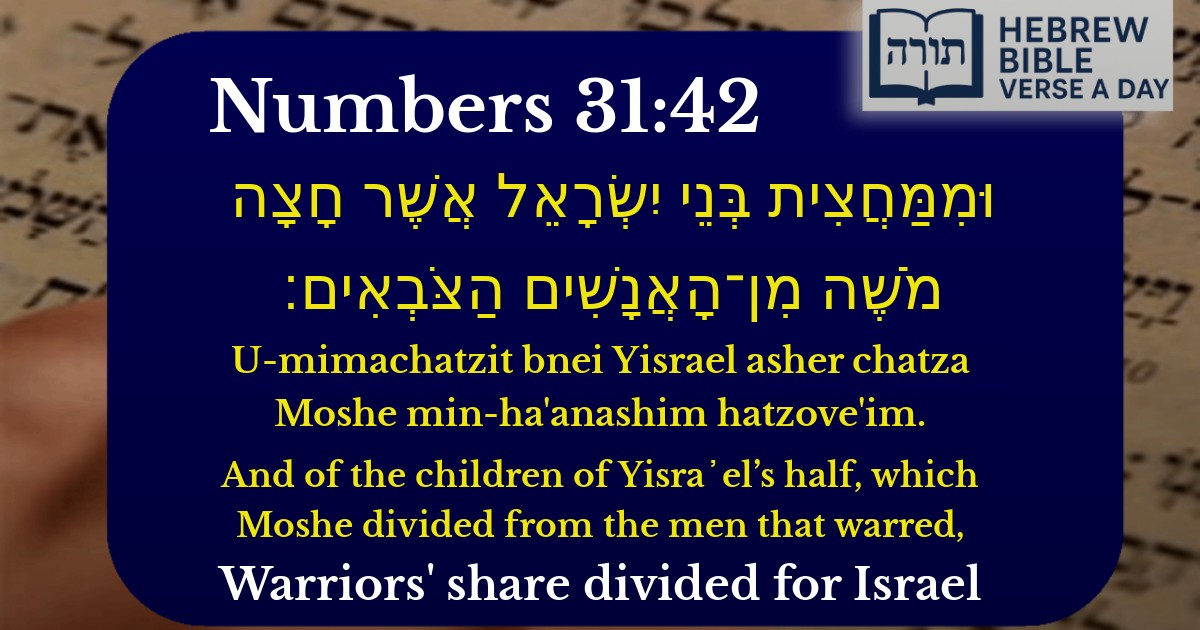Join Our Newsletter To Be Informed When New Videos Are Posted
Join the thousands of fellow Studends who rely on our videos to learn how to read the bible in Hebrew for free!
Hebrew Text
וּמִמַּחֲצִית בְּנֵי יִשְׂרָאֵל אֲשֶׁר חָצָה מֹשֶׁה מִן־הָאֲנָשִׁים הַצֹּבְאִים׃
English Translation
And of the children of Yisra᾽el’s half, which Moshe divided from the men that warred,
Transliteration
U-mimachatzit bnei Yisrael asher chatza Moshe min-ha'anashim hatzove'im.
Hebrew Leining Text
וּמִֽמַּחֲצִ֖ית בְּנֵ֣י יִשְׂרָאֵ֑ל אֲשֶׁר֙ חָצָ֣ה מֹשֶׁ֔ה מִן־הָאֲנָשִׁ֖ים הַצֹּבְאִֽים׃


Context of the Verse
This verse (Bamidbar 31:42) appears in the context of the distribution of spoils from the war against Midian. Moshe divided the spoils into two halves: one for the soldiers who fought and one for the rest of the community. The verse refers to the half designated for the broader community of Bnei Yisrael.
Rashi's Explanation
Rashi (Bamidbar 31:42) clarifies that Moshe divided the spoils equally between those who went to battle and those who remained in the camp. This division teaches the principle that even those who did not physically participate in the war still contributed through their support—such as prayer and merit—and thus deserved a share.
Midrashic Insights
The Midrash (Bamidbar Rabbah 22:4) elaborates that the division of spoils reflects the unity of Klal Yisrael. Just as the Levi'im received tithes despite not inheriting land, those who stayed behind were entitled to a portion of the spoils because the entire nation shares collective responsibility (ערבות).
Halachic Implications
Symbolic Meaning
The Or HaChaim (Bamidbar 31:42) explains that the equal division symbolizes the interdependence of all Jews. Those who engage in physical endeavors (like war) and those who focus on spiritual pursuits (like learning) are equally essential to the nation's survival and success.